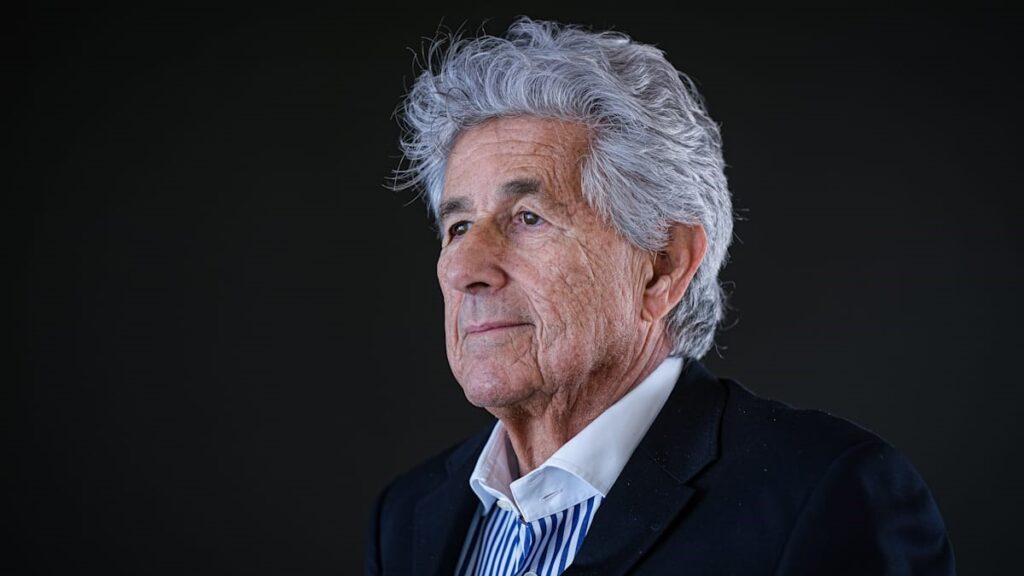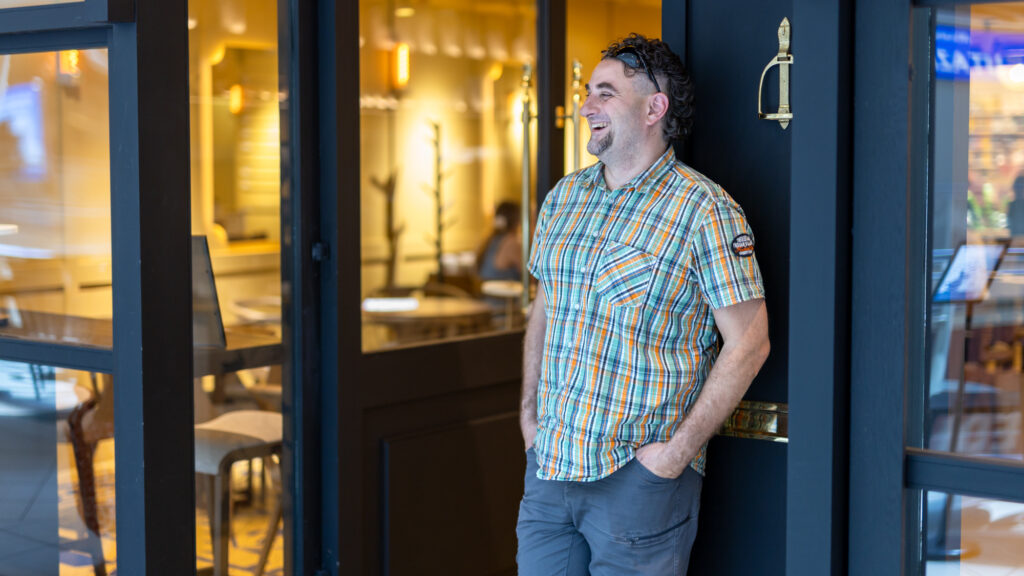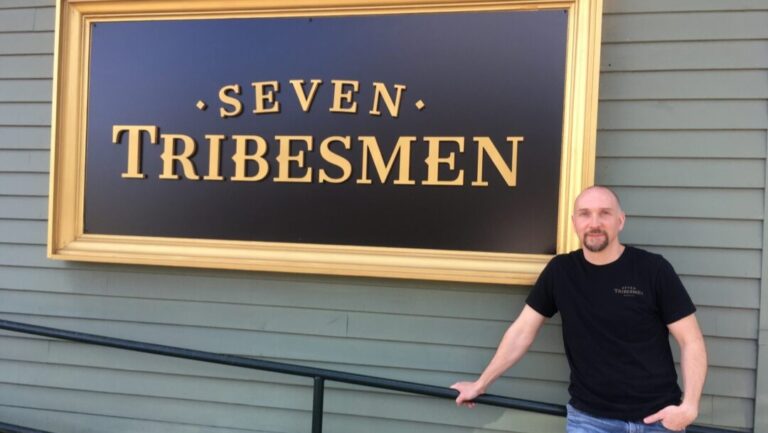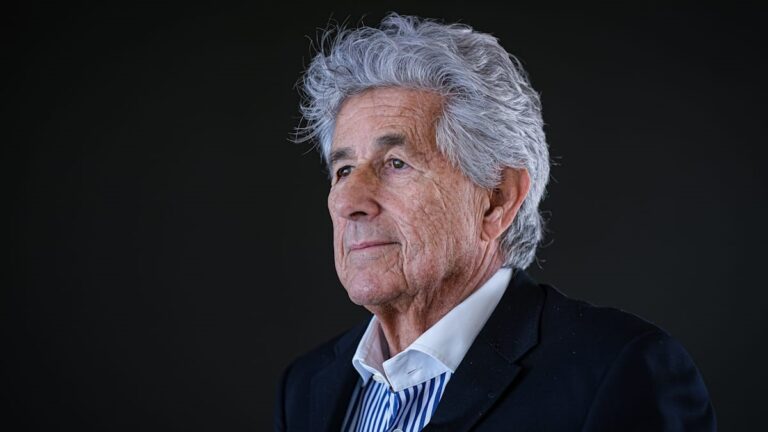Alex Kaschuta is a writer, cultural critic, and podcast host from Romania, whose writing has been featured in the New York Post, The American Mind, Vice, and other outlets. She was also an invited speaker at Danube Institute’s recent conference, Return and Transformation of Geopolitics, where I asked her about the origins and effects of wokism on our societies, as well as the intellectual dark web and their hunt for alternatives to classic liberalism.
First, I would like you to introduce yourself a bit. What draws somebody to being a cultural critic and what is the story of your Subversive Podcast?
My background is in economics. I went to study in Vienna, at the Austrian School of Economics and finished my Master’s there. That kind of drew me to the West. At one point, I worked in technology and finance for the better part of 10 years. I was writing on the side, but after a while, my experiences in the world of the Western kind of elite finance made me interested in cultural criticism, to say the least. So I just started writing for more right-wing publications. And when I say that, I started out writing for Vice. It was not that left-wing when I started, about seven or eight years ago. But it turned very left-wing very fast, and that was also something that led me to slowly drift into more right-wing publications. And that also led me to start posting my thoughts on Twitter. Twitter became a big platform for me and then I started my podcast about a year ago. And that is kind of what got me here.
A lot of your work focuses on wokism. In your view, what are the origins of this phenomenon? Because on one hand, it seems like it’s just a decade-old obsession or trend, but on the other hand, we have a lot of great pieces of literature from way back which were already warning about this stuff.
My podcast and the direction I am going to with it is a kind of post-liberalism, where the perspective that I take is that this has been bubbling under the surface of Western culture for a very long time. The issue is that even if you take out French postmodernism, even if you take out the excesses of post-structural thinking, and if you go from the point, for example, of someone like John Stewart Mill, and you take this idea of an individual, rational human being trying to pursue his interests, making choices, and then being liberated from the unchosen bonds, this essentially leads you toward wokism eventually. Because, just think about it, even the parameters of being a man or a woman are not something you choose, it is something you get born into.
If you follow the pathway from John Stewart Mill to today, you can very easily get to wokeness even without taking the detour through the post-structural 1960s
And then, what transgenderism is trying to do is to unshackle you from this obligation to be this or that. Maybe the rational individual inside you wants to be a unicorn today or wants to be a pansexual whatever today. And that is one option. So essentially if you follow the pathway from John Stewart Mill to today, you can very easily get to wokeness even without taking the detour through the post-structural 1960s. And this is a very controversial and dark thought because a lot of people want to think that the American founding is the most liberal, basic event and there is nothing wrong with the ingredients that went into that. But if you really think about it, a lot of those founders as well were essentially classical liberals, and classical liberals are essentially non-progressive liberals. But the core idea in there is still something that—across a few iterations—tends to lead to what we see nowadays. As I said, it is a controversial space.
What I am trying to do is invite more people and talk about this more, because this is a revelation that people have had maybe in the last few years. A lot of people come from the so-called ‘intellectual dark web’ of classical liberalism towards this space because at one point, classical liberalism will get them to that kind of Reddit-tier atheism stuff, like ‘oh, science will save us’ and things like that. And there are not that many good responses there. So if you are an intellectually curious person, you will slowly start to explore the ‘meta-liberal’, post-liberal space by either going back to the classics—there are a lot of people studying the classic, going back to Plato and Aristotle—or you will go to people like Patrick Deneen, or you will go towards the integralists or you will go to a philosopher like John Gray. There are so many spheres that people are exploring now that are outside of classical liberalism, which are kind of spicy and dangerous, unfortunately, because no one wants to throw out the baby with the bathwater of liberalism. But yes, I think it is a promising new area of inquiry. I do not have the answers, but hopefully, some will come out.
You mentioned the ‘intellectual dark web’, what do you mean by that? And also, what is the role of the internet in this process? Because on one hand it seems to exacerbate and speed up the whole woke transformation, but on the other hand in many cases, it is the only place that allows people to freely explore alternatives.
The intellectual dark web is this coalition of people who are essentially classical liberals, but kind of anti-woke. I think Eric Weinstein named this or at least he is one of these people. And others are, for instance, Jordan Peterson or even Joe Rogan. So, that is the name for this kind of anti-woke classical liberal circle that was very popular a few years ago. And what I meant to say was that this kind of people who are in that movement are starting to move into a different space. And like you said, the internet accelerates everything. So for example, I would probably have called myself a classical liberal three or four years ago. Probably not that much now, because I went with this movement and this is where it spit me out.
About the internet, it is an accelerator and it is also a fracturing thing. It creates these intellectual silos that are completely separate from each other, which on the one hand is good because it is very fruitful. It compresses you into producing a lot of things, but it also insulates you from other thinking. So it is a very strange beast. And I think a lot of the problems that we have with liberalism come down to this. Liberalism used to be relatively stable back in the time. In a unipolar media apparatus—like the one we had in the 50s, 60s—things are stable because even if things were liberal, people had the same type of liberalism installed. Now we have this fracturing system and I think a lot of the wokeness that we see is very much a consequence of the structure of the internet rather than the actual content of the ideas and how it evolves so fast.
It is also true that the West is way ahead in this regard than Eastern and Central Europe. Some people suggest that Central Europe could be sort of immune to wokism to a certain degree because of the lurking memories of communism. Do you think this is the case, or this is simply just a time lag?
I think it depends on the sphere and there is a longer timeline for some than for others. But in the case of young westernized people who have watched enough media so that they speak English, the lag is almost imperceptible. It’s not even measured in days, it is measured in hours maybe. So people of my generation—millennials and younger—who went to college, there is no time lag. They have the software installed. However, people in the rural areas, who still have a lot of voting power, do not have this software installed. There is a complete, huge rural-urban split. But unfortunately, those who drive public opinion all live in the city and it’s slowly trickling down to the rural areas as well.
The susceptibility to wokism is just proportional to the extent of exposure to the internet
So maybe, I think the susceptibility to wokism is just proportional to the extent of exposure to the internet. For example, even people who only speak Romanian and get their information from local mass media, also get their information from Reuters or AP or other big agencies that essentially are running a lighter version of the software, but everything’s kind of still skewed from their perspective that goes into the Romanian tabloids that everyone reads from village to village. The perspective is still skewed in that direction, even if it is just slightly, but every year it gets even more skewed. So it is slowly priming people to think in that liberal paradigm.
Do you think this exposure is something that we should just learn to accept or is it something that should be regulated in some way? For instance, Tik Tok—a platform known for its extreme progressivism—is immensely fashionable among a very young age group and therefore many politicians in multiple countries consider regulating it, just as they did in China.
Yeah, it is super addicting. And if you look at what some CEOs and developers in Silicon Valley do and how they manage technology and allow access to it to their children, you can actually tell what is dangerous or not. If we were to replicate that level of interdiction to the whole population, that would probably be much, much healthier. I am not against using laws for this type of stuff. It is very hard to regulate though, in the sense that a lot of the people who make the regulations really do not understand the technology. So it might be very heavy-handed. Because a lot of this regulation is just banning certain apps. The second they pivot, they make an app that is just slightly different. So the regulation is always behind. But at the same time, for me, if they could just completely ban internet pornography and things like that, I would be pretty happy because I feel like that is another completely disastrous area. There are all sorts of things that could be banned, which only serve a manufactured need anyway.
David Courtwright developed this idea of limbic capitalism. The idea behind capitalism is that you make products that serve a need and then you get money for them. And this is really good. Obviously, you are creating and exchanging value, awesome. But limbic capitalism plugs into your limbic system essentially creating the need. It hijacks your brain and pushes buttons, like a slot machine, for example. What is a slot machine? It is not something that creates value; it is something that extracts value. In this sense, a lot of social media usage is essentially a slot machine that extracts value rather than creating it.
But it is essentially an addictive process that does not actually give you value over the longer term of your life, but you crave it at the moment. So this is internet pornography also. There is no way that people actually have their lives becoming better after they consume this product. It is like highly processed, crazy foods that are mimicking a natural stimulus. You know, when you were in the outback 5,000 years ago, and you found a beehive and there was honey in that, and people did not use to have that excess of the combination of sugars and fats and all that type of stuff. It is very addictive and people crave it and they will part with money for burritos. But it is limbic capitalism. It extracts value from you, from your addiction to it. So essentially these are areas that probably would benefit from more careful regulation.
Where do you see the end of wokism? Because as you mentioned at the conference, it does not seem viable in the long run. But what are the factors needed for our societies to surpass this type of destructive thinking?
The west now is in a situation where wokism is high status. People want to imitate wokism
I am a believer in a kind of “elite theory”. It is based on the fact that every society has a certain elite cast and that their attitudes are observed by everyone, then they trickle down. So if the elites of a society believe in a certain religious system or culture, people tend to look up to them and regard these ideas as high-status things. We want to imitate high-status things. The west now is in a situation where wokism is high status. People want to imitate wokism. For example, people who just learned English, they look to their favorite celebrities and they’re all very woke. They automatically think that these are the values of the high priestly cast and that they need to adopt them. But wokism, as I said in my speech, is starting to clash with reality in very embarrassing ways.
You know, the Chinese are making fun of wokism, and they even have the word baizuo to describe the woke westerner. It is clashing with reality in many other ways. And I think a lot of the young people who are very smart, who are eligible to be part of the new elite, realize how embarrassing the difference is between what wokism says and reality itself. And once there is a switch in the elite caste of what they believe, what they think is useful, I hope we go from cringe to based. And then that is going to trickle down again. How fast this happens is anyone’s guess, but I think that is probably going to be the next step at one point, hopefully in my lifetime.
Alex Kaschuta’s Subversive Podcast and selected writings can be found here.








